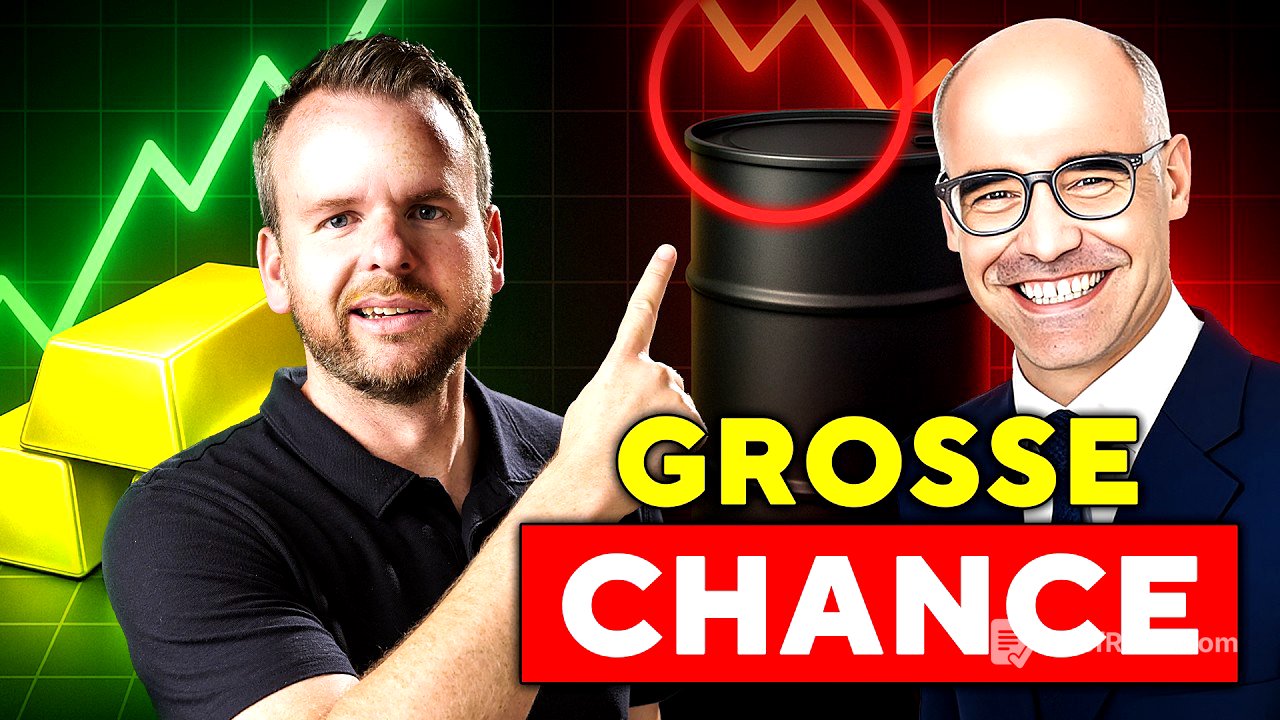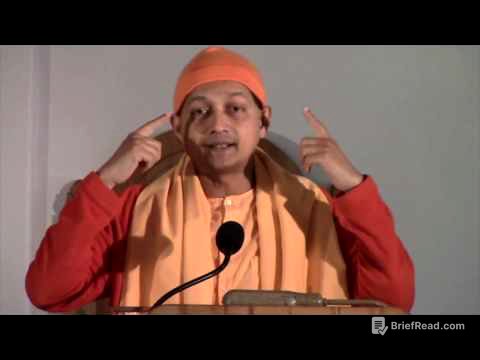TLDR;
This YouTube video features a conversation between Mark Friedrich and Alexander Stahl, a Swiss asset manager with expertise in macroeconomics and commodities. They discuss various topics, including the US labor market, the potential for recession, the differences between the dot-com bubble and today's markets, the influence of Donald Trump on geopolitical events, the energy market in Europe, and the outlook for gold and other commodities. Stahl shares his insights on these complex issues, offering a unique perspective shaped by his background in finance and military service.
- The US labor market data is unreliable and prone to revisions, making it a questionable basis for Fed policy.
- The current market situation is not as extreme as the dot-com bubble, but AI could create a similar hype cycle.
- Trump's influence could lead to a ceasefire in Ukraine, impacting oil markets.
- China's economic slowdown and shift towards coal are affecting the oil market.
- Gold remains attractive due to geopolitical tensions and central bank buying.
Intro & Vorstellung [0:00]
Mark Friedrich introduces Alexander Stahl, a Swiss asset manager with extensive experience in the financial world, including private equity and investment banking. Stahl's expertise spans various sectors, with a focus on commodities, particularly gas and oil. He also possesses geopolitical and military knowledge due to his background as an officer in a tank company in the Swiss Army. Friedrich plans to ask Stahl rapid-fire questions to provide viewers with insights into his views on the world and investment strategies.
Schnellfragen: Gold, Öl, Aktien, Geopolitik [1:30]
Stahl shares his investment choices for the next 10 years: physical gold, a top gold mining company, and Swiss Francs. He predicts gold will exceed $5,000 by the decade's end, favoring it over Bitcoin. While he anticipates rising oil prices long-term, he foresees potential price drops in the next 18 months. Regarding the US stock market, Stahl notes it's "priced to perfection" but sees potential for improvement, contingent on upcoming jobs reports. He believes Trump's involvement increases the chance of a ceasefire in Ukraine. Stahl identifies Chus Maf in Germany as the best tank manufacturer and describes German energy policy as a "spiritual experience" heading in the wrong direction. He values direct democracy as Switzerland's best asset.
US-Arbeitsmarkt, Zinsen & Rezessionsgefahr [5:30]
Stahl notes that recent US labor market data has been significantly revised downwards, increasing expectations of interest rate cuts by the Federal Reserve. He suggests that the US may already be in a recession, masked by the influence of AI. He explains that the labor market report is based on a sample survey of companies and households, making it prone to errors and revisions. He points out that Trump has criticized the data's quality, and a new appointment at the statistics office could lead to more positive reports. Stahl emphasizes that the labor market will ultimately dictate economic conditions, with Mike Green's research highlighting the correlation between employment rates and the American stock price through passive investing.
Dotcom-Blase vs. heutige Märkte [15:00]
Stahl argues that the current market situation is not as extreme as the dot-com bubble of the late 1990s. He explains that during the dot-com era, anything related to the internet received incredible valuations, whereas today, strong valuations are limited to specific sectors and companies. He acknowledges that AI could create a similar hype cycle but cautions against overestimating its short-term impact. Stahl highlights that companies like Alphabet, Amazon, and Microsoft have built unique business models with strong network effects, setting them apart from many companies during the dot-com era. He suggests that the Nasdaq has the potential to reach 40,000, but flexibility and scenario-based thinking are crucial.
Trumps Einfluss & Ukraine-Friedenschance [25:10]
Stahl believes that Donald Trump's influence increases the likelihood of a ceasefire in Ukraine. He notes that if Trump wants the Nobel Peace Prize, he could pressure Russia by sanctioning oil exports. Stahl suggests that Trump may have secured alternative oil supplies from Saudi Arabia and the UAE, enabling him to take a tougher stance on Russia. He interprets the Kremlin's actions as an attempt to find a ceasefire that would blame Ukraine for any future violations. Stahl emphasizes that the US ultimately views China as the primary geopolitical challenge and seeks to end the conflict in Ukraine to focus resources on China.
Gasmarkt & Energieversorgung Europas [35:40]
Stahl believes that a ceasefire in Ukraine would not necessarily lead to a significant increase in Russian gas supplies to Europe due to existing sanctions and legal disputes between European companies and Gazprom. He notes that while there are still pipelines from Russia that could increase gas supply, European customers are hesitant to resume using Russian gas. He suggests that the US might lift certain sanctions, but the Europeans are unlikely to do so. Stahl states that Europe has managed to secure gas supplies through LNG imports, with China playing a role by freeing up capacity. He anticipates that gas storage levels in Europe will reach around 85% and that the gas market is currently uninteresting from an investment perspective.
Ölmarkt-Analyse & China-Faktor [42:10]
Stahl anticipates potentially falling oil prices over the next 12 months due to several factors, including a slowdown in Chinese demand, a shift towards coal in China, and increasing oil production in various regions. He notes that China's economic recession and real estate crisis are impacting oil consumption. He explains that China is strategically shifting towards coal for energy security reasons, reducing its reliance on oil imports. Stahl also highlights that the increasing adoption of electric vehicles and hybrids in China is contributing to a decline in gasoline and diesel demand. He points out that oil supply is growing in the Middle East, Asia, and America, with countries like Canada, Brazil, Guyana, and Argentina increasing production.
Venezuela & geopolitische Ölstrategien [50:30]
Stahl discusses the potential for Venezuela to increase its oil production under a Trump administration. He notes that Venezuela has the largest oil reserves in the world but has suffered from political and economic mismanagement. Stahl suggests that with proper investment and regulation, Venezuela could quickly increase its oil production to 2 million barrels per day and eventually reach 4 to 8 million barrels per day.
Kupfermarkt & Rohstofftrends [53:00]
Stahl discusses the copper market, noting that Trump's trade policies can significantly influence commodity prices. He explains that Trump's announcement of tariffs on copper imports led to a sharp increase in the price of copper in the US, followed by a correction when he reversed the decision. Stahl expresses skepticism about a copper supercycle due to the slowdown in China's construction industry, which accounts for a significant portion of global copper demand. He suggests that the EV revolution may not fully offset the decline in copper demand from the construction sector. Stahl concludes that the copper market is currently neutral and that he does not have any positions open in copper mines.
Fazit & Ausblick 2025 [59:00]
Stahl explains his bullish outlook on gold, driven by geopolitical tensions and central bank buying. He notes that central banks have significantly increased their gold purchases since 2022, and this buying behavior is no longer price-sensitive. Stahl believes that gold is a safe haven asset in a world of increasing geopolitical and financial risks. He also highlights the growing demand for gold from Chinese consumers. Regarding other precious metals, Stahl expresses caution about silver due to its strong reliance on industrial demand and the difficulty in finding high-quality silver mines. He is also cautious about platinum and palladium due to geopolitical risks in South Africa, where most of the good mines are located. Stahl prefers to invest in mining stocks rather than physical gold due to the greater leverage on rising gold prices. He emphasizes the importance of understanding the fundamentals of mining companies and looking for assets that large companies would want to acquire.









